
Mediterranean Diet: Everything you need to know
The Mediterranean Diet is a healthy eating plan. It includes fruits, vegetables, whole grains, legumes, nuts, and healthy fats. It's inspired by the traditional foods of France, Spain, Greece, and Italy.
This diet is not just tasty but also backed by science. It helps with weight management, prevents chronic diseases, and boosts overall health.
The Mediterranean Diet focuses on plant-based foods. It suggests eating at least 3 servings of fruits and vegetables every day. It also recommends 3 to 6 servings of whole grains and starchy vegetables daily.
Extra virgin olive oil is a key part of the diet, with 1 to 4 servings daily. Legumes like beans and lentils are important, with at least 3 servings per week.
Fish, like salmon and tuna, should be eaten 3 times a week. Nuts and seeds are also essential, with at least 3 servings weekly. Dairy, poultry, and eggs are okay in moderation to keep nutrients balanced.
It's best to avoid processed foods, refined sugars, and red meat. Wine can be part of the diet, making it a flavorful way to eat. This approach can lower heart disease and chronic illness risks.
What is the Mediterranean Diet?
The Mediterranean Diet is based on the eating habits of countries around the Mediterranean Sea. It focuses on eating lots of fruits, vegetables, whole grains, legumes, nuts, and healthy fats. This diet is flexible and allows for a variety of foods, making it easy to follow.
The mediterranean diet guidelines help you eat in a balanced and healthy way. They encourage a wide range of foods, fitting different tastes and diets.
Overview
The Mediterranean Diet comes from the traditional eating of people in Greece, Italy, and Spain. It's known for its health benefits. It suggests eating whole foods and being moderate, not restrictive.
The mediterranean diet food list includes vegetables, fruits, whole grains, beans, nuts, seeds, and healthy fats like olive oil. It also recommends eating fish and shellfish 2 to 3 times a week.

Historical Context
Studies from the 1960s showed that heart disease was less common in some Mediterranean countries. This led to the recognition of the Mediterranean Diet's health benefits. It's now linked to longevity and preventive health, backed by the American Heart Association.
Core Principles
The Mediterranean Diet is more than just food. It's about enjoying meals, staying active, and connecting with others. Sharing meals with family and friends is key, promoting a positive food relationship.
The diet also suggests savoring food without distractions. It's about a holistic approach to wellness. Choosing whole-grain products over refined grains and eating dairy in moderation are important. It limits red meat and focuses on plant-based foods. It also has guidelines for moderate wine consumption.
These principles make the Mediterranean Diet a great choice for long-term health. It's sustainable and promotes quality eating.
Benefits of the Mediterranean Diet
The Mediterranean Diet is loved worldwide for its health benefits. It's known for improving overall health and well-being. Let's explore why this diet is so effective.
Health Benefits
The benefits of the Mediterranean diet are vast. A study found it lowers the risk of metabolic syndrome. This means less chance of disease. It also boosts cognitive health, as shown in a review.
It even helps with sleep quality, as seen in Italian adults. This shows its positive effect on daily life.

Weight Management
The Mediterranean diet helps keep a healthy weight. It focuses on fiber and healthy fats, which help you feel full. This reduces the urge to overeat.
It's good for people with type 2 diabetes and those struggling with obesity. Kids and teens who follow it tend to eat better and weigh less.
Heart Health
The Mediterranean diet is great for the heart. Studies show it lowers heart disease risk and improves cholesterol. The American Heart Association recommends it for heart health.
It also lowers inflammation, which is good for the heart. Following this diet can slow plaque buildup in arteries. This reduces stroke risk and helps you live longer.
Key Components of the Mediterranean Diet
The Mediterranean Diet is rich in nutrients thanks to its key components. This section will explain the importance of fruits and vegetables, whole grains and legumes, and healthy fats. These are the basic elements of the plant-based Mediterranean diet.
Fruits and Vegetables
Fruits and vegetables are at the core of the Mediterranean Diet. Eating 7 to 10 servings a day is advised. Even 3 to 5 servings can lower heart disease risk.
This advice comes from the PREDIMED study and the American Heart Association. They highlight the heart-protective benefits of eating lots of vegetables and fruits.
Whole Grains and Legumes
Whole grains and legumes are key. They help lower cholesterol and keep blood sugar stable. Legumes add protein and fiber, boosting health.
Studies like the Lyon Diet Heart Study show their benefits. They help reduce heart disease risks.
Healthy Fats
Healthy fats are essential in the Mediterranean Diet. They replace bad fats like saturated and trans fats. Foods like extra virgin olive oil, nuts, and omega-3 fatty acid-rich fish are good for the heart.
Research, like the GISSI-Prevenzione Trial, backs this up. It shows omega-3 fatty acids can lower heart disease and death rates.
Foods to Eat on the Mediterranean Diet
The Mediterranean diet focuses on eating a variety of healthy foods. It's easy to find tasty and nutritious meal ideas. Fresh produce is a big part of this diet. You'll eat lots of veggies like tomatoes, broccoli, and kale.
Fruits like apples, bananas, and citrus fruits are also key. They're full of vitamins.
Seafood is another important part of the diet. Fish like salmon and tuna are good for your heart. Poultry and red meat are eaten less often.
Whole grains like barley and brown rice are also essential. They give you fiber and nutrients. In the U.S., most grains are not whole, so eating more is important.
Dairy is eaten in small amounts, but fermented products like Greek yogurt are encouraged. Healthy fats from olive oil and avocado add flavor and nutrition. Nuts are great for snacks because they're full of protein and healthy fats.
Herbs and spices like basil and garlic make Mediterranean food taste great. Vinegar is also used for its health benefits and to balance flavors.
| Category | Examples |
|---|---|
| Fruits | Apples, Bananas, Citrus Fruits, Dates |
| Vegetables | Tomatoes, Broccoli, Kale, Artichokes |
| Seafood | Salmon, Tuna, Sardines |
| Whole Grains | Barley, Oats, Brown Rice |
| Legumes | Beans, Lentils, Chickpeas |
| Healthy Fats | Olive Oil, Avocado, Nuts |
| Dairy (Moderate) | Greek Yogurt, Cheese |
Foods to Avoid or Limit
Following the Mediterranean Diet means watching what you eat. It helps you live healthier and eat better. Knowing what to avoid helps you make good choices.
Processed Foods
The Mediterranean diet tells you to stay away from processed foods. Avoid snacks, frozen meals, sugary drinks, and packaged items. They often have bad fats, sugars, and salt.
Instead, choose fresh foods and cook at home. This way, you control what you eat.
Refined Sugars
Refined sugars are bad for you. They add empty calories and cause health problems. Limit foods like sweets, candies, and sweet drinks.
Choose natural sweeteners like fruits. They're sweet but better for you. Cutting out processed foods helps your health and weight.
Red Meat
Red meat is okay, but eat it less. Processed meats like bacon and sausages are bad for your heart and health. Choose lean proteins like fish, poultry, and legumes.
These foods are healthier and fit the diet's goals. They help you avoid bad fats and choose better options.
| Food Categories | Examples to Avoid | Healthier Alternatives |
|---|---|---|
| Processed Foods | Sugary Beverages, Prepackaged Meals | Fresh Fruits, Homemade Meals |
| Refined Sugars | Candies, Sugary Desserts | Fresh Fruits, Dark Chocolate |
| Red Meat | Bacon, Sausages | Fish, Poultry, Legumes |
Mediterranean Diet Meal Plan and Recipes
Looking to try the Mediterranean Diet? You'll find a wealth of meal plans and recipes to suit all tastes and needs. From simple plans for beginners to slow cooker recipes, there's something for everyone. These plans feature ingredients like chickpeas, quinoa, sweet potatoes, salmon, and Greek yogurt, making healthy eating both simple and tasty.
Sample Meal Plan
A typical day on the Mediterranean diet might include:
- Breakfast: Greek yogurt with berries and honey.
- Lunch: A whole grain sandwich with fresh veggies and hummus.
- Dinner: A mixed greens salad with tomatoes, cucumbers, olive oil, and grilled seafood.
These meals show how easy and healthy the Mediterranean diet can be. Many plans start with 1,200 calories for weight loss. You can then increase to 1,500 or 2,000 calories as needed.
Popular Recipes
The Mediterranean diet focuses on fresh, whole foods, making it appealing to many. Some favorite recipes include:
- Grilled Salmon: Marinated with olive oil, lemon, and herbs.
- Lentil Salad: Mixed with tomatoes, cucumbers, red onions, and a tangy dressing.
- Stuffed Zucchini Boats: Filled with quinoa, chickpeas, and veggies.
- Quinoa Salad with Chickpeas: Tossed with lemon, olive oil, and fresh herbs.
Following the Mediterranean diet for weight loss means eating nutrient-rich, low-calorie meals. These recipes are easy to make and show the diet's focus on enjoying healthy, delicious meals without feeling deprived.
Conclusion
The Mediterranean Diet is more than just food; it's a way of life. It focuses on eating fresh, whole foods and healthy fats. It's all about choosing plant-based options.
This diet comes from the Mediterranean area. It's a mix of culture, history, and nature. It shows the importance of eating well and keeping traditions alive.
The Mediterranean Diet has roots in ancient cultures. It includes foods like rice, tomatoes, and corn. It also has staples like bread, wine, and olive oil.
Studies, like the "Seven Countries Study," have shown its health benefits. It's good for your heart, can lower cancer risk, and help you live longer.
Following this diet makes eating enjoyable and sustainable. It's about quality food and keeping traditions alive. It's a fun way to stay healthy for a long time.
FAQ
What are the main benefits of the Mediterranean Diet?
The Mediterranean Diet helps with weight management and lowers the risk of heart disease and type 2 diabetes. It also improves cholesterol levels and can add years to your life. It's good for your mind too, helping to reduce depression and anxiety.
What foods are included in the Mediterranean Diet food list?
You'll eat lots of fruits, vegetables, whole grains, legumes, nuts, and seeds. Heart-healthy fats like extra virgin olive oil are key. Fish and seafood are good proteins, and dairy is okay, but in small amounts, like in Greek yogurt.
How does the Mediterranean Diet promote heart health?
It's all about the fats. Olive oil and omega-3 fatty acids in fish are great for your heart. Eating lots of fruits, vegetables, and whole grains also helps keep your heart healthy.
Is the Mediterranean Diet effective for weight loss?
Yes, it can help you lose weight. It's full of fiber and healthy fats that make you feel full. Eating whole foods and balanced meals keeps your energy up and helps with weight management.
What are the Mediterranean Diet guidelines?
Eat lots of plant-based foods and some dairy and protein, like fish. Avoid red meat and processed foods. Use olive oil as your main fat. Enjoy red wine in moderation and stay active.
How adaptable is the Mediterranean Diet to different lifestyles?
It's very flexible. It's about guidelines, not strict rules. You can make it fit your own tastes and lifestyle while staying true to its core principles.
Are there any specific Mediterranean Diet meal plans available?
Yes, there are many meal plans out there. A sample might include Greek yogurt with berries for breakfast, a whole grain sandwich for lunch, and a salad with grilled seafood for dinner.
What are some popular Mediterranean Diet recipes?
You'll find recipes like grilled salmon, lentil salads, stuffed zucchini, and quinoa salads with chickpeas. These show how fresh, whole foods are at the heart of the Mediterranean Diet.




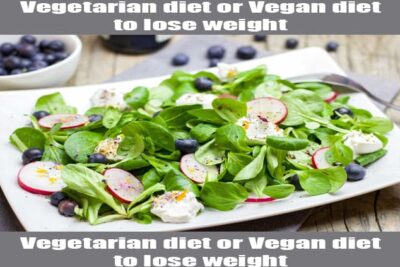

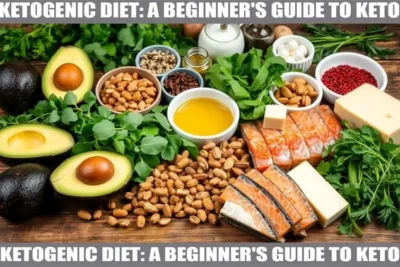


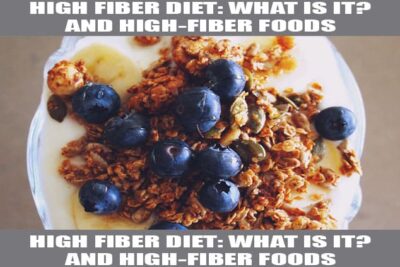

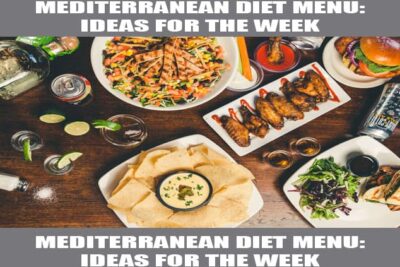

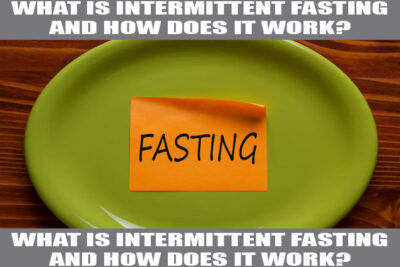





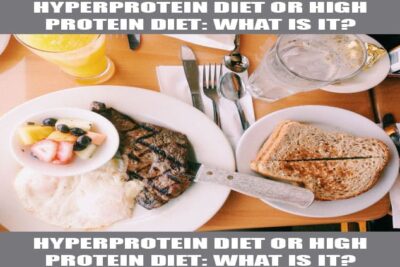





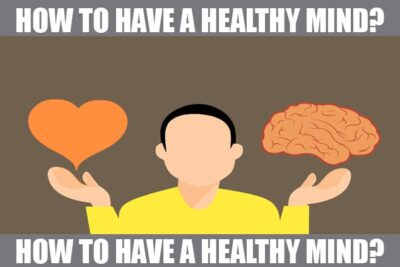
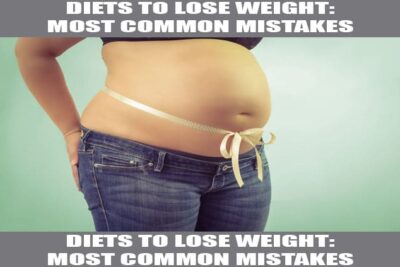

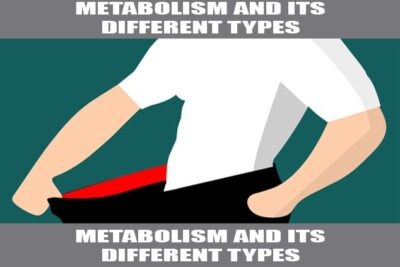
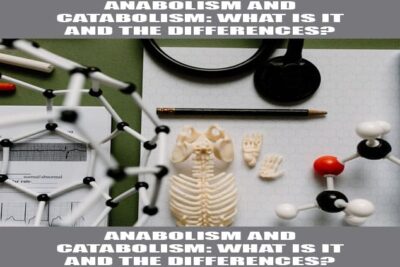
Content that may interest you